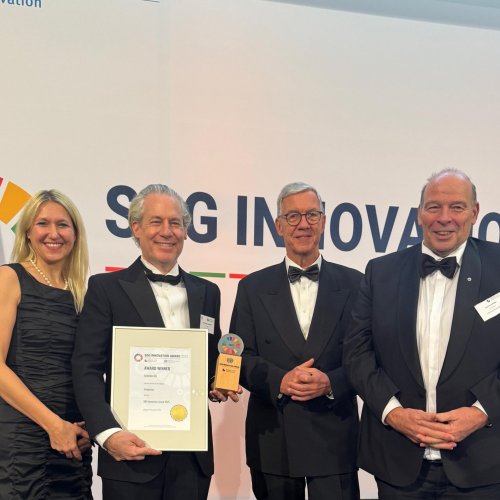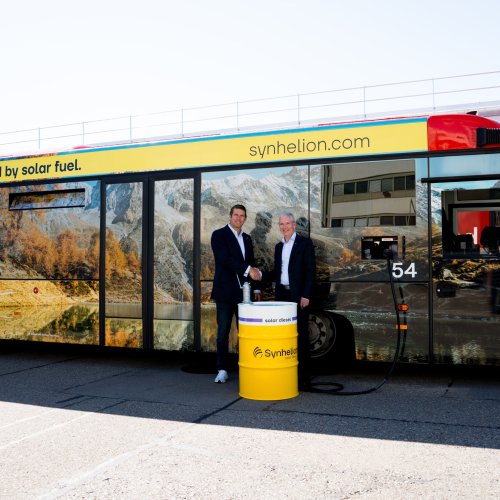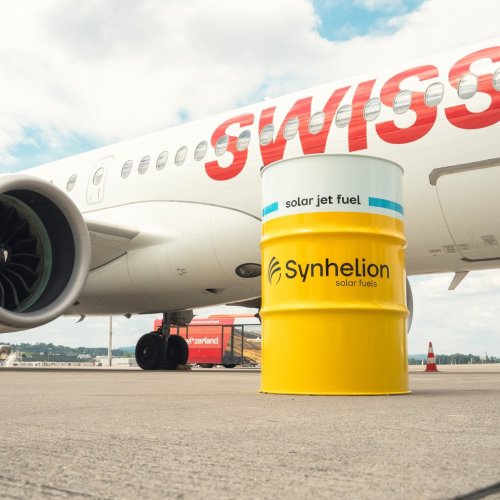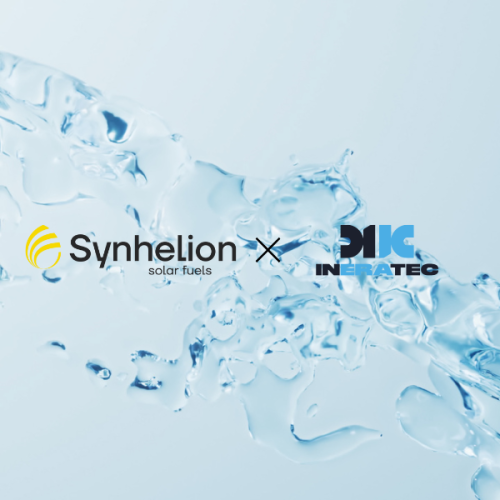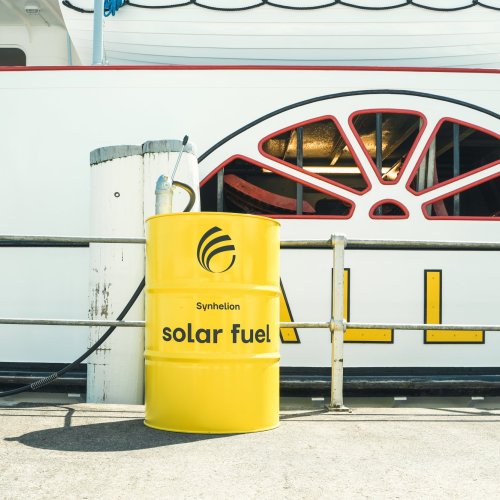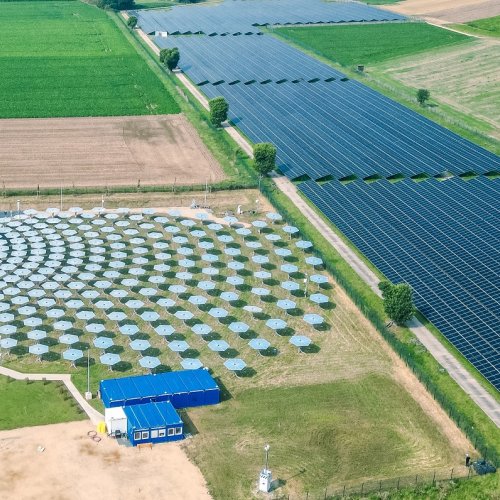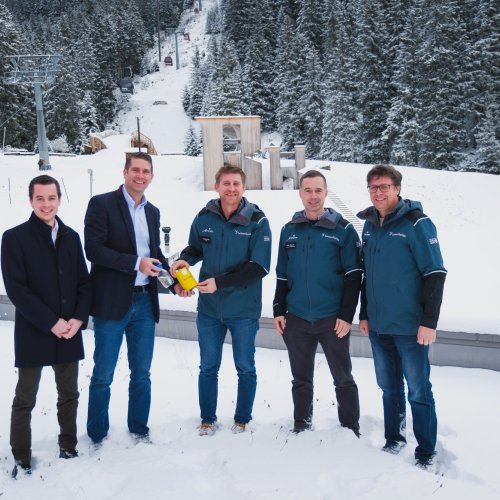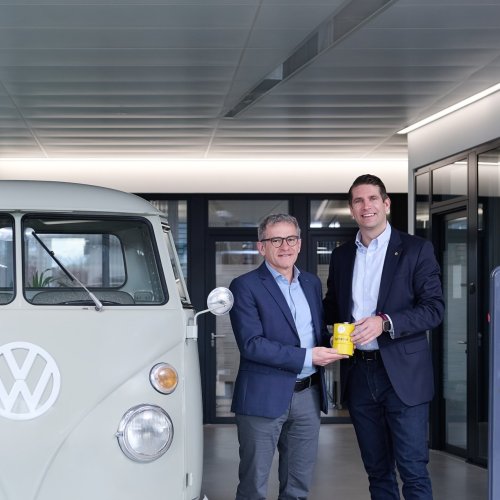We turn sunlight into fuel.
And move the world toward net zero.
Transforming transportation
As a global leader in renewable fuels, Synhelion is pioneering the future of clean transportation. With the world’s first solar fuel plant in operation, we produce renewable synthetic fuels from solar energy. Our fuels directly replace fossil fuels, making net-zero transportation a reality.
The transportation industry emits 8 billion tons of CO2 per year. We work to get this number to zero.
Synhelion delivers SAF to SWISS
SWISS has become the first airline in the world to integrate the renewable fuel manufactured by Synhelion into its flight operations. The action marks a milestone for both partners on the journey to more sustainable aviation. Alternative fuels such as Synhelion’s SAF are crucial to the industry’s endeavors to achieve its ambitious carbon reduction objectives.

Fueling the future
Synhelion produces renewable synthetic fuels from solar energy. Our solar fuels can directly replace fossil fuels and are fully compatible with existing global fuel infrastructure. They enable sustainable transportation and reduce CO2 emissions by up to 99% compared to fossil fuels.

Scaling for global impact
Our proven, de-risked technology is deployed in our first industrial-scale solar fuel plant – creating track record every day.
Now, we are scaling our technology worldwide to revolutionize sustainable transportation.













